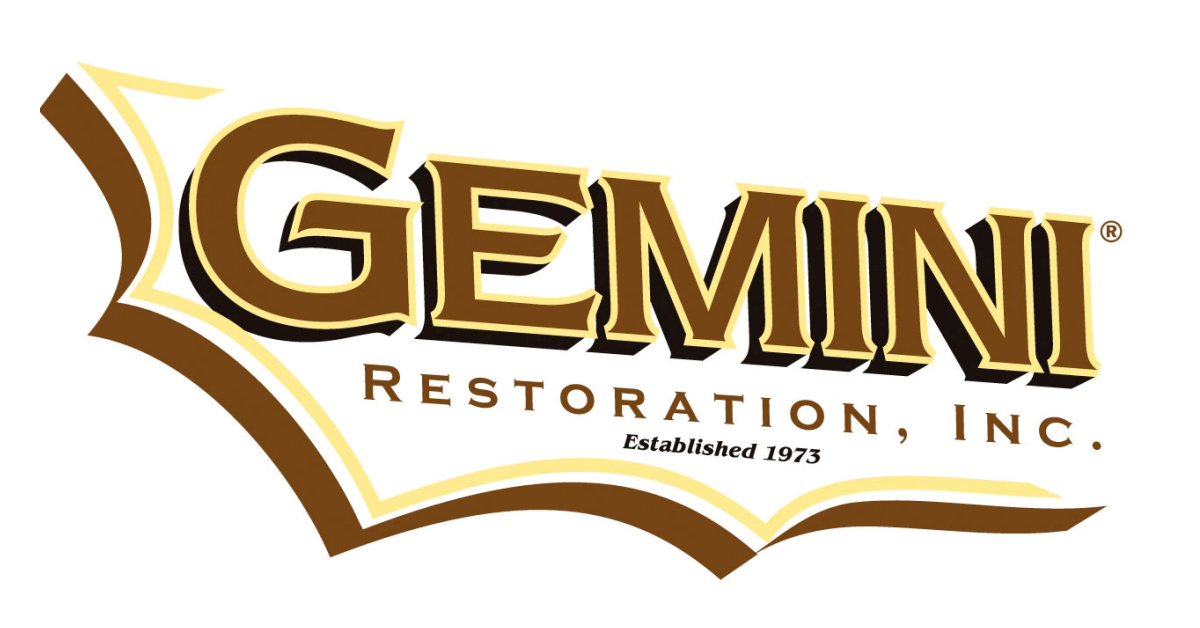
When a fire or water-related catastrophe strikes, you need a team of caring and dedicated specialists on your side who have a history of successfully completing tens of thousands of remediation, restoration, and new construction projects. For over 50 years, New Jersey home and business owners have relied on Gemini Restoration to provide them with professional cleaning and remediation services.
Over four decades of experience and a full line of specialized equipment make Gemini’s team of cleaning and remediation specialists uniquely qualified to provide you with comprehensive fire and water damage restoration and reconstruction services, as well as meticulous commercial cleaning services that meet CDC guidelines for sanitizing high-touch surfaces during the COVID-19 pandemic. Our reputation for excellence and professionalism has helped us strengthen and expand our relationships with major insurance carriers, architects, realtors and property owners. Gemini Restoration is recognized in the industry as an expert in fire and water restoration and construction-related matters and always delivers high-quality craftsmanship.
Since 1973, our commitment to providing home and business owners with top-quality service, professionalism and competitive pricing that meets insurance industry guidelines has helped set our clients’ minds at ease. We offer 24/7 emergency service, and unlike other restoration companies, we are qualified to handle your fire or water loss from your initial call to the completed restoration and rebuild sets us apart from other restoration companies. Years of experience handling over a quarter of a million losses has made us adept at skillfully developing and executing unique loss-handling strategies for unusual loss conditions. Our expert service professionals will provide you with personalized attention and the utmost consideration regarding decision-making policies about insurance-loss work and general construction projects.
As one of the top ten largest independently owned and operated full-service restoration and general construction companies in the US, Gemini Restoration owns a whole fleet of fully equipped trucks and vans, as well as a full line of diverse state-of-the-art restoration equipment. Our New Jersey location is in Union, allowing us to efficiently service clients throughout the state.
Our family-owned and operated business has provided personalized, caring customer service to clients in their times of need for three generations. Our management team has accrued over 100 years of combined restoration and construction experience. We have evolved into a 21st-century company while remaining committed to high-quality service, professionalism, and competitive pricing approved by insurance industry guidelines.
If your home or commercial building falls victim to fire or water damage, or you need your business space thoroughly cleaned and disinfected, rely on the experienced professionals at Gemini Restoration for exceptional, personalized service. Family owned and operated with a full line of modern and efficient equipment, we’re the restoration company trusted by your New Jersey friends and neighbors.

As springtime arrives and the weather warms, setting aside some time to address a few basic home maintenance tasks to keep your home in good working condition is important, especially after a harsh winter. We’ve put together a helpful list of items you should consider tackling before they become larger, more costly issues.
Inspect your home’s foundation for cracks in the cement or mortar, and if you have a basement, check the interior walls for cracks as well. If you discover any cracks large enough that a nickel can be slid into them, then it’s a good idea to have a professional inspect the damage to determine if repairs are necessary.
If your home has a crawl space beneath it, check that all the screens on the air vents along the foundation walls are free of damage and clear of debris. The vents need to be clear so that air can circulate to inhibit moisture buildup and mold growth. Repair damaged screens to prevent insects and small animals from making a home of your crawl space.
Inspect your roof for missing or damaged shingles (they might look warped or rippled), and your attic for evidence of moisture seepage or leaks. If you find any damage to your roof or attic, contact a professional who can pinpoint the cause and perform repairs to prevent further damage to your home.
Harsh weather, freezing temperatures, and ice can cause damage to your home’s gutter system. Inspect your home’s gutters and downspouts to make sure they aren’t sagging and look for holes and cracks that may have formed over the winter months. Also check to make sure your downspouts route water at least five feet from foundation walls. It might be a good idea to hire a professional contractor to repair or replace any damaged sections.
Check that your gutters and downspouts are free of debris. Buildup in your gutters can cause water run-off that can damage your home’s foundation and flood your landscape, basement, or crawlspace. To clean your gutters and downspouts, grab a pair of work gloves and remove as much debris as you can by hand or with a gardening trowel. Using a garden hose, run water into the gutters to remove leftover dirt and particles. Run the hose through the downspouts to wash leaves and gunk out. Alternatively, you could hire a professional gutter-cleaning contractor.
Loose or damaged siding can allow moisture to seep underneath and quickly lead to mold growth, which can spread and cause extensive damage to your home. Repair or replace any pieces of siding that are detached, cracked, warped, or very weathered. Painted siding that is peeling needs to be scraped, sanded, and repainted.
Check your deck or porch for loose or rotting boards and structural stability. Consider extending the life of your wooden deck by resealing it if it’s starting to look worn.
Inspect your window screens to be sure they’re tightly fastened, and repair holes or replace any damaged screens to prevent insects from entering. Also repair peeling or cracked caulk around the glass to keep your windows sealed and prevent water leakage.
Help prevent your home’s siding from becoming scratched and damaged by trimming shrubs and trees so their branches can’t scrape against your home. Also ensure the area surrounding your outdoor air conditioning unit is clear of all plant and tree growth to prevent damage to your AC system. Consider hiring a professional tree trimmer to cut down damaged tree branches that could fall onto your roof during a storm. Also check your property’s fencing for damage, and have any loose sections repaired or replaced.
The spring season can bring with it a lot of rain, which increases the risk of flooding. Get ahead of April showers by giving your sump pump a checkup to make sure it’s in top working condition. Clear all debris from around your sump pump to prevent damage, and if you have a back-up unit, check to make sure it’s also in top shape.
Prevent a house fire by cleaning your laundry dryer’s vent. Clear the lint by disconnecting the vent from the back of the dryer and using a dryer vent brush to clean it out. Locate the dryer vent cover on the outside of your home and use the dryer vent brush to remove the lint from that end of the line. The dryer vent cover flap should be able to move freely.
Help keep you family safe by ensuring your smoke alarms and carbon monoxide detectors are in tip-top shape. Test all of the units in your home, and change the batteries to ensure they’re fresh.
Being proactive in preparing your home for spring and repairing damage caused by harsh winter weather can prevent extensive damage to your home and allow you to relax and enjoy the spring season. However, if your home does incur flood, fire, or mold damage, Gemini Restoration is here to help!

If you’re planning to spend a cozy Valentine’s Day at home, why not make it even better with some comfort food you’re sure to love unconditionally? With a little planning, you can create a simple but sumptuous breakfast, lunch, or dinner (or all three!) that’s sure to please adults and kids alike.
These easy, prep-ahead mini omelettes can be customized by switching up the ingredients. Make them extra special by baking them in heart-shaped muffin tins.
Serve up some fluffy pink pancakes topped with strawberry syrup and whipped cream for a sweet and satisfying Valentine’s Day treat!
Made with simple ingredients, this one-dish, satisfying, bake-and-eat breakfast treat is sure to please.
A stress-free, prep-ahead alternative to traditional eggs benedict that brings all the taste and none of the hassle.
Start the day off right with a fantastic twist on traditional french toast that can be prepared the night before and popped in the oven for a scrumptious Valentine’s breakfast.
Make ahead, reheat, and create a Valentine’s Day soup bar by setting out a variety of toppings to be used as add-ins.
Easy to pull together with a few ingredients, the pomegranate seeds in this delicious salad add a festive Valentine’s Day vibe.
Featuring sugar-coated slivered almonds and bright red strawberries, this salad is the perfect addition to your Valentine’s Day menu.
Always satisfying, this Valentine’s Day take on pizza can be topped with heart-shaped pepperoni or enjoyed plain.
An easy and elegant meal for a special occasion, this beef tenderloin is great on its own or accompanied by one of the salads listed above.
An easy-to-make flavorful spin on chicken that plays to the sweet theme of the day.
Cheesy and satisfying, with pieces of Pancetta that add flavor and holiday color.
This classic dinner will surround you with the savory aroma of juicy, flavorful roasted chicken. A great choice for a cozy evening at home.
Topped with biscuits and seasoned with chipotle peppers and adobo sauce, this one-dish meal is a unique twist on traditional turkey pot pie.
Creamy and delicious, this upscale take on traditional mac n cheese is comfort food that will make you swoon.
Like a homemade box of chocolates, baked with love!
Surprisingly easy to make, these individual cakes are a luxurious treat.
A special occasion calls for this chewy, melt-in-your mouth dessert.
Grab a pint of your favorite ice cream flavor and transform it into a love-inspired take on the traditional chocolate-covered ice cream treat.
The ultimate fluffy cupcakes, with white chocolate strawberry frosting and a uniquely rich strawberry flavor.
Whether you’re planning a romantic dinner for two or family-friendly celebration, the Gemini Restoration team wishes you a safe and enjoyable Valentine’s Day!

Winter is upon us, and with it come some seasonal maintenance requirements for your home or business. Because water expands when it freezes, putting extreme pressure on whatever contains it, your metal or plastic pipes are at risk of cracking or bursting if you haven't adequately protected them from freezing temperatures. Broken pipes are one of the most common causes of property damage during the winter months. We've put together a list of some simple things you can do to prevent your pipes from freezing and avoid costly damage to your home.
Pipes at the highest risk for freezing are those located in unheated areas like garages, attics, kitchen cabinets, crawl spaces, basements and attics; poorly insulated pipes that run along exterior walls; and outdoor pipes like those that supply swimming pools and water sprinklers.
If water runs out of one or more of your home's faucets at a trickle, or not at all, you could have frozen pipes. Thawing your pipes before they burst will save you thousands of dollars in repairs. To thaw the lines, take the following measures while keeping your faucets open so that the water can run freely as the ice inside the pipes melts.
The experts at Gemini Restoration have over four decades of experience in frozen and burst pipe mitigation and remediation. If the pipes in your home or business are frozen or have burst, our experienced team can help by making repairs and preventing further damage.
Call the Gemini Restoration team today at 877-774-3646 to request an estimate.

This holiday season might look a little different than those of past years, but that doesn’t diminish how thankful we are for you, our cherished Gemini Restoration clients. As we look back over the unique challenges we’ve all faced in 2020, we remember our loyal clients with sincere gratitude. We appreciate that you’ve chosen to put your faith in us, and we don’t take your choice for granted.
It’s through your support that our family-owned and operated company has been able to proudly serve the community for over 40 years, growing to become one of the ten largest independently owned and operated full-service restoration and general construction companies in New Jersey. As in the past, we’re renewing our commitment to providing you with exceptional professional services in the coming year.
We thank you for your continued patronage and wish you health, peace and happiness this holiday season and throughout 2021.
Happy holidays and a healthy and happy new year from our family to yours,
The Gemini Restoration Team

We are proud to announce that for the second year in a row, Gemini Restoration has won the Sedgwick Repair Solutions Customer Service Award. Gemini was selected as one of three award recipients from among over 2,000 service provider’s in Sedgwick’s network. Sedgwick Repair Solutions, one of the largest third party service administrators, determined the winners using a compilation of both actual customer satisfaction scores and total number of surveys submitted.
As a top-rated, highly experienced residential and commercial restoration company with a complete line of specialized equipment, Gemini Restoration is exceptionally qualified to provide you with comprehensive fire and water restoration, reconstruction, and commercial cleaning services. Our team has successfully completed tens of thousands of water and fire catastrophe-related losses and thousands of new construction and building restoration projects. We are dedicated to helping safeguard your health and that of your clients, employees and tenants, and follow the Cleaning and Disinfecting Guidelines recommended by the CDC for sanitizing high-touch surfaces. Our high-quality service, professionalism and competitive pricing meets industry guidelines and has earned us a reputation for excellence among insurance carriers, architects, realtors and property owners.
Fire Damage? Flooding? Re-opening your business under COVID-19 safety guidelines? When disaster strikes, call the experts at Gemini Restoration 24/7 at 877-774-3646 for fast, dependable remediation of your home or commercial building.
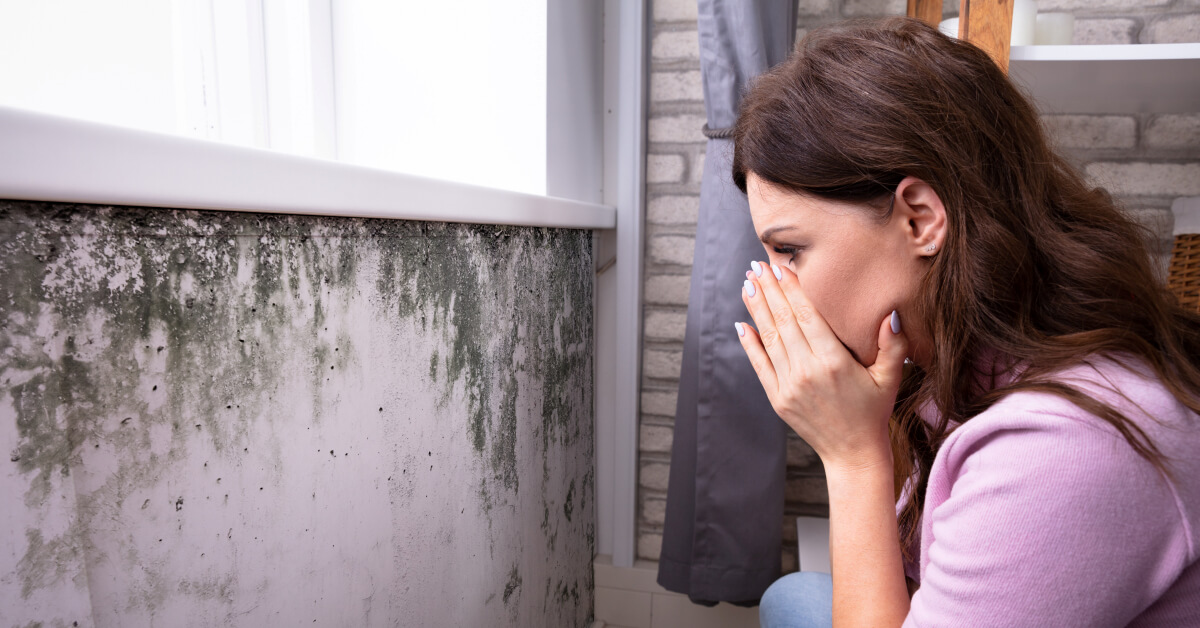
Although outdoor mold plays an important role in breaking down organic matter like dead trees and leaves, when it grows indoors, it can wreak havoc on your home and wellbeing. Because all types of mold need moisture and oxygen to grow, your home or business is at risk if excessive moisture is allowed to build up inside. Microscopic mold spores are naturally present in the air. The spores land on wet wood, paper, ceiling tiles, wallpaper, drywall, carpet, fabric, upholstery and insulation, where they can live for years, growing, spreading and destroying your home. When inhaled, mold spores and mold’s gaseous output can cause allergies and serious health problems whose symptoms include sneezing, congestion, runny nose, sore throat, skin rashes, eye irritation, headaches, dizziness, fatigue and asthma attacks. Even dead mold spores cause allergies for years.
In general, it’s important to keep your home dry and well-ventilated to prevent indoor mold growth. If your house or business gets flooded, it’s essential to remove all wet materials and dry out the building completely within 24-48 hours. On a regular basis, maintain airflow throughout your home by leaving inside doors open and using fans or air conditioning. Having a certified allergy-friendly filter installed in your central AC unit can help reduce the number of mold spores floating around in your home. Be sure to replace air conditioner filters every three months and keep the unit clean. Using a dehumidifier to keep indoor humidity below 45% will also impede mold growth in your home. Drain and clean the dehumidifier’s water reservoir at least twice a week to prevent mold growth within the unit.
Because mold thrives in warm, moist and dark environments, attics, basements, kitchens and bathrooms are particularly at risk for mold growth:
If you see condensation build-up on any of the windows in your home, they need to be repaired or replaced immediately. Likewise, if there are wet spots on your ceilings, walls or floors, it’s important to have a contractor or plumbing expert diagnose and fix the leak before mold has a chance to grow.
It’s essential to have mold removed from your home as soon as possible to protect your home and your family’s health. If you see spotty discoloration of any color on the surfaces in your home, it could be mold. Although very small areas of mold can be removed from solid objects with household products, if the affected area is larger than 10 square feet, it is safest for your family’s health to have professionals remove the mold.
The mold mitigation and remediation experts at Gemini Restoration have over four decades of experience in mold mitigation and remediation. We can help make your home safe again by identifying the moisture source and extent of the mold infestation, removing porous materials, thoroughly cleaning non-porous surfaces with antifungal detergent, and making necessary repairs.
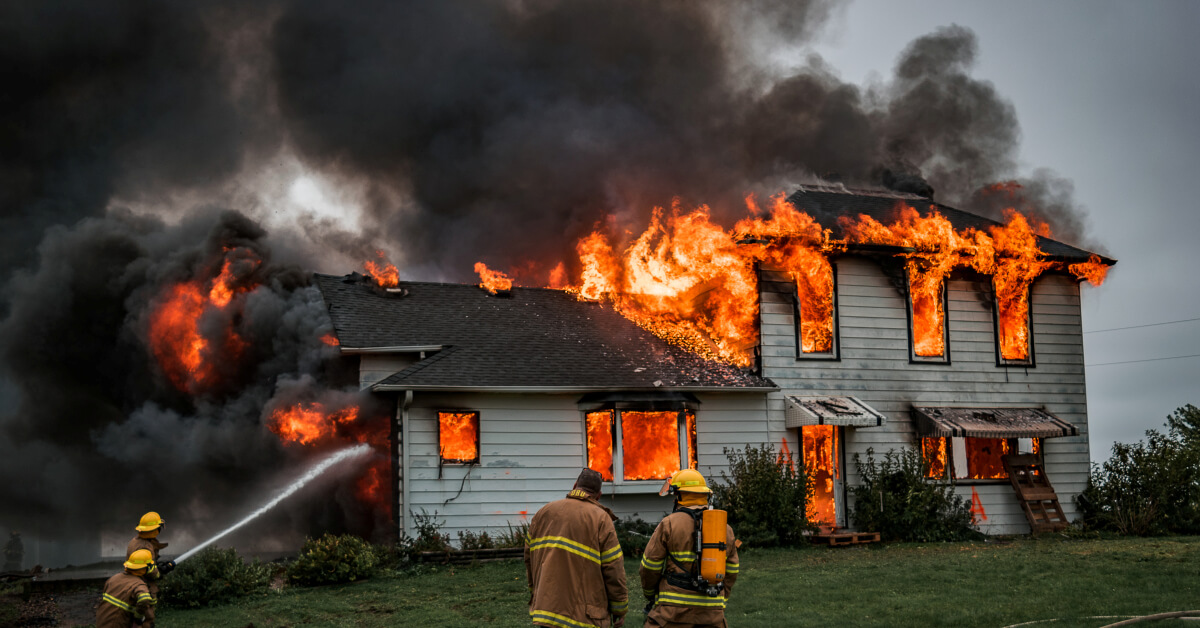
Fires kill more than 4,000 people in the United States each year and cause more than $7 billion in property damage. A fire at home or work can be devastating but is easily preventable. You can help protect your property, family and co-workers by taking crucial steps today to prevent fires at home and at work.
For tips on how to prepare a fire emergency evacuation plan for your home or business, visit the American Red Cross and US Department of Labor websites.
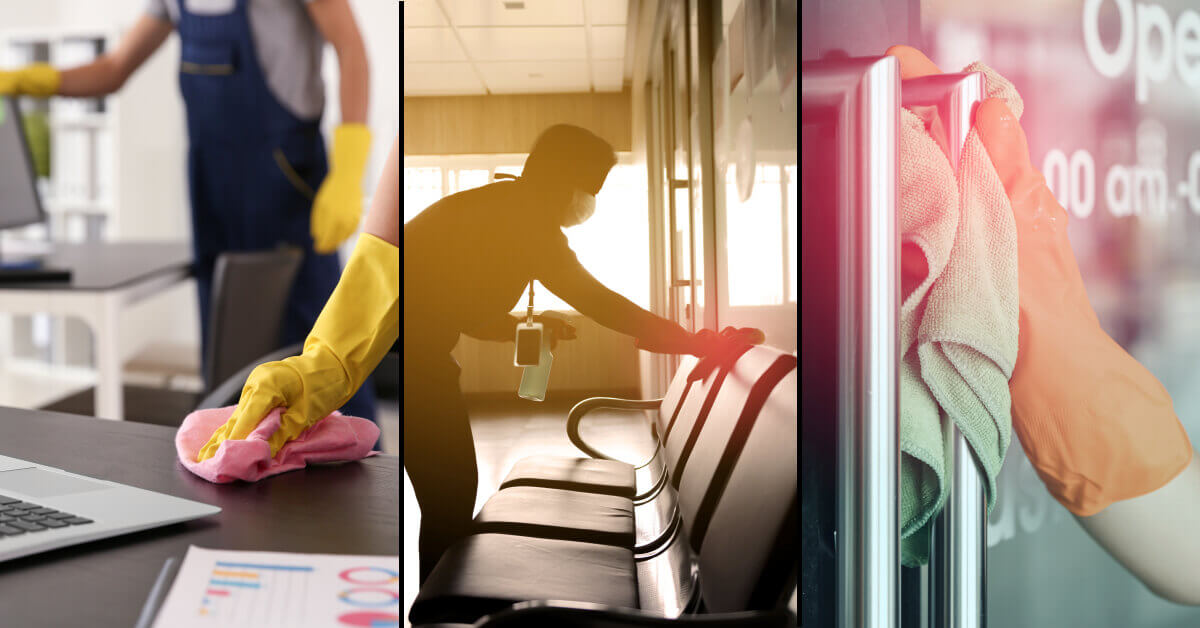
When you reopen your business, your customers and employees will feel more comfortable knowing that your physical environment has been adequately cleaned and disinfected to reduce the risk of exposure to COVID-19. Developing a cleaning plan for your business, implementing the plan, maintaining a cleaning routine and making revisions as necessary are crucial activities for any company planning to reopen during these challenging times.
A thorough evaluation of what surfaces and objects need cleaning is the first step in creating your cleaning plan. Consider removing items that aren't essential to your business to free up space and reduce the number of surfaces that will need to be cleaned regularly. Area rugs, upholstered furniture, and drapes are especially challenging to clean and disinfect and should be removed if possible.
You’ll need to disinfect frequently touched surfaces such as tables, chairs, desks, countertops, drawer handles, phones, keyboards, toilets, faucets, sinks, touchscreens, gas pump handles, ATMs, doorknobs and light switches often. While initial soap-and-water cleaning is important to help decrease the amount of the virus on surfaces, using EPA-approved disinfectants will further reduce the risk of COVID-19 exposure. Note that certain disinfectants may require specially trained personnel for safe and proper use. For guidelines on the personal protective equipment (PPE) you'll need for cleaning and disinfecting, visit the CDC's website.
Your employees and customers will feel more comfortable knowing you've properly cleaned and disinfected your business space. While implementing your cleaning plan, remember to make sure the area where you'll be cleaning is adequately ventilated, always keep all cleaning products out of the reach of children, store and use disinfectants according to the instructions on their labels, and don't mix different types of cleaning products together as this can create fumes that are very dangerous to your health. Be sure to wear proper personal protective equipment (PPE), including disposable gloves, while cleaning, to protect yourself from exposure to the virus and chemical disinfectants.
Before disinfecting hard surfaces and objects, clean them with soap and water. Disinfect these surfaces and objects with an appropriate EPA-approved disinfectant or a suitable replacement. For effective disinfection, follow label instructions for how long to keep the wet product on your surfaces before wiping it off.
For instructions on cleaning upholstered and other soft surfaces, such as carpets, area rugs and drapes, visit the CDC's website. In most instances, you'll need to launder upholstered or cloth items in the warmest water possible according to manufacturer instructions and dry the items thoroughly.
Always remember to wash your hands thoroughly with soap and water and clean or dispose of your PPE correctly after you have finished cleaning.
Regularly cleaning and disinfecting your business environment can help reduce the risk COVID-19 infection and enable you to keep your business open. Clean and disinfect frequently handled surfaces after each use and at the end of each day. To the extent possible, keep enough PPE and disinfectant on hand for your needs. You can find cleaning and disinfecting guidelines for specific industries here. Revise your cleaning and disinfecting plan as needed based on new guidelines and circumstances.
With more than four decades of commercial cleaning experience, Gemini Restoration is uniquely qualified to clean, sanitize and disinfect your business. We use only EPA-approved cleaners and disinfectants and follow all CDC Cleaning and Disinfecting Guidelines. Whether you need a one-time deep cleaning or weekly, bi-monthly or monthly cleaning services, we can help you reopen your business with peace of mind.
Re-opening your business under COVID-19 safety guidelines? Kick-off your clean start by calling the experts at Gemini Restoration 24/7 at 877-774-3646 or by filling out our commercial cleaning request form for an estimate.
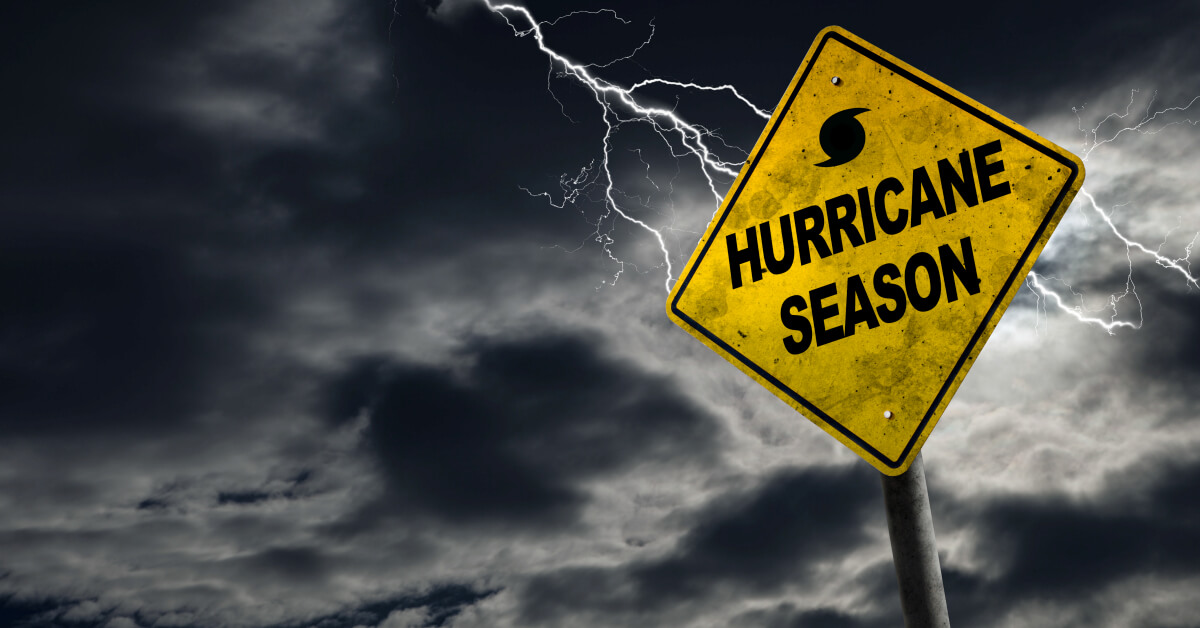
Hurricanes can produce high winds, heavy rainfall and flooding that can cause bodily injury, property damage or destruction of your home or commercial building. Storm damage can force you to move out of your home or close your business until repairs are possible. Knowing how to keep yourself and your family, home and business safe during a hurricane can reduce the likelihood of serious injury, save you time, money and inconvenience, and protect your source of income. We’ve compiled the following tips to help you prepare for hurricane season:
During Hurricane season, which peaks from mid-August through October, keeping a well-stocked emergency kit on hand is important. Having what you need to survive at home or when evacuated will enable you to shelter in place comfortably and help reduce your family’s anxiety before, during and after the storm. When you know a storm is approaching, filling your car's gas tank is also a good idea, in case you need to evacuate quickly. See the sidebar for a list of items to pack in your emergency preparedness kit.
Make sure everyone sheltering with you knows how to get out of the building in an emergency. Know the local emergency routes and have a plan for contacting each other if family members become separated during an evacuation.
Securing your property when you’re first warned that a hurricane is approaching can prevent personal injury or costly damage to your home or business:
Throughout the storm, keep your emergency storm preparedness kit handy while following these safety guidelines:
Staying safe during the storm is essential, but keep in mind that hazards like fallen or unstable trees, downed power lines, heavy debris and floodwaters can pose hazards to yourself, your family, your home or your commercial building even after the storm has passed. Proceed with caution, stay out of buildings whose walls or roofs have been damaged, and avoid contact with floodwater. If possible, open all doors and windows to air out your property, and protect yourself from exposure to possible mold and bacteria by wearing gloves, goggles, rubber boots and an N95 mask when inside the building.
If your home or business has flooded, it should be inspected by a qualified professional who can recognize potential hazards and mitigate further damage to your property. Drywall, paneling, insulation, flooring, and electrical outlets that have absorbed floodwater may need to be torn out and replaced. Materials that have absorbed water, such as mattresses, cushions and upholstered furniture, will need to be removed, dried and inspected for fungal growth. All items that can be dried and salvaged will need to be disinfected to the growth of mold, which can cause your family or the occupants of your commercial building to become sick.
With over 50 years of storm-recovery experience and an extensive inventory of specialized equipment, the specialists at Gemini Restoration are exceptionally qualified to provide you with storm damage remediation services for your home or business. The Gemini team follows all safety guidelines when meeting all of your restoration needs and has an excellent reputation for high-quality service, professionalism and competitive pricing that meets insurance industry guidelines.
It's important to always be prepared! Make sure you have an emergency preparedness kit full of essential items. Pack your kit in one or more waterproof containers and update it regularly by replacing anything that’s outdated. HERE is a link to the full list of items you should include in your kit.